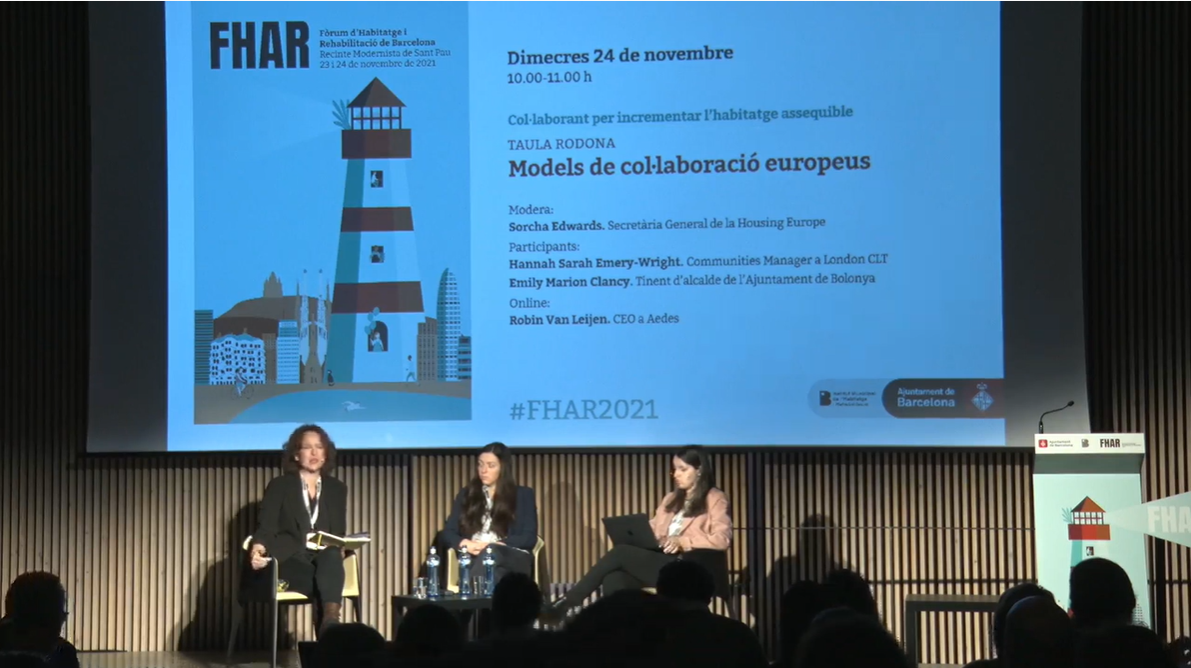24 November 2021
The Barcelona Housing and Renovation Forum (FHAR) is an initiative of the Municipal Institute of Housing and Renovation (IMHAB) of the Barcelona City Council, that aims to bring together professionals from the public and private sector to debate, work on, and highlight the future of the right to housing in the city, just as it is overcoming a pandemic that poses new challenges.
On 24th November, the Barcelona Housing and Rehabilitation Forum (FHAR) gave the floor to the the lead writer of the #Housing2030 report, Julie Lawson who started by saying that “leadership and political commitment are essential to reach the local community and to work collectively with resources, legislation and everything that can allow a better market.”
Speaking about sustainable finance, she stressed on the essential importance of regulation and ruling of housing investments, as well as having a certification control with regard to investments and their management. “Finance, land governance, regulation and climate adaptation, it was very important to get those fundamentals right to have impact on the ground. #Housing2030 started because the answers to the global global housing crisis were oversimplified’, the Secretary General of Housing Europe, Sorcha Edwards said in continuation at the start of the European collaboration models session which she moderated.
We also heard from Hannah Sarah Emery-Wright, from Community Land Trust London who set the context for the English capital where most citizens spend 48%-78% of their income for rent. By following its model, to keep ownership of the land, the CLT has sold a one-bedroom flat for GBP135K or only one-third of the price.
The Deputy Mayor of Bologna, Emily Marion Clancy said that the city has become the 4th most expensive one in Italy for rent, risking overtourism that further drives up prices. Increasing house construction without using new soil, renovation, using social housing only for rent and requiring every new building of over 20,000 square metres to allocate 30% to social housing have been some of the measures Bologna has been implementing.
Finally, our member from AEDES, Robin Van Leijen explained that an important part of the Dutch model is the participation of tenants who are represented in the supervisory board. For every rehabilitation of a building, 70% of the tenants must agree with giving a green light to the works. He also gave the example of the Dutch Tripartite Agreements between housing associations, municipalities and tenant organisations which obliged by a Housing Act come together to plan the year ahead and discuss affordability, new homes, livability and renovation.
Would you like to hear more examples of collaboration from the sector? Tune in here.
